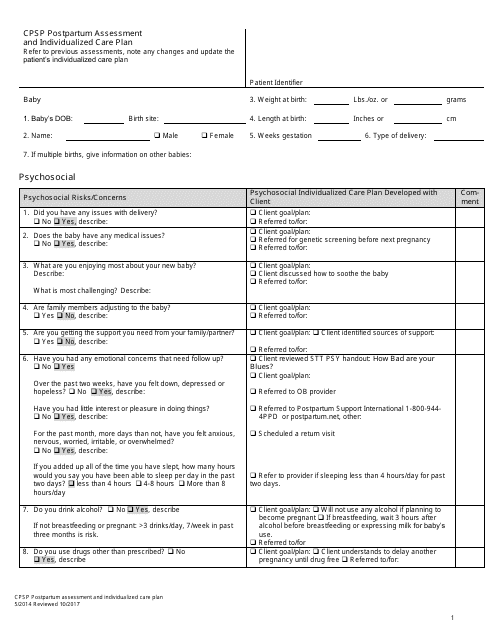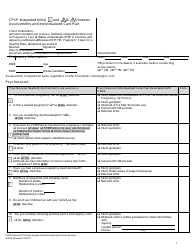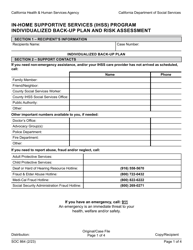Cpsp Postpartum Assessment and Individualized Care Plan - California
Cpsp Postpartum Assessment and Individualized Care Plan is a legal document that was released by the California Department of Public Health - a government authority operating within California.
FAQ
Q: What is the purpose of a postpartum assessment and individualized care plan?
A: The purpose is to ensure the health and well-being of both the mother and baby after childbirth.
Q: Who is responsible for conducting the postpartum assessment and creating the care plan?
A: Healthcare professionals such as doctors, nurses, or midwives are responsible for these tasks.
Q: What does the postpartum assessment involve?
A: The assessment includes checking the mother's overall health, monitoring vital signs, evaluating the healing of the reproductive organs, assessing breastfeeding challenges, and screening for postpartum depression.
Q: Why is an individualized care plan important?
A: It allows healthcare providers to tailor the care and support provided to meet the specific needs of each mother and baby.
Q: What are some components that may be included in an individualized care plan?
A: Components may include guidance on breastfeeding, pain management, contraception options, emotional support, and educational resources on newborn care.
Q: How long should the postpartum assessment and care plan be continued?
A: The assessment and care plan should be continued for at least six weeks after childbirth, but the duration may vary depending on the individual needs of the mother and baby.
Q: Is the postpartum assessment and individualized care plan specific to California?
A: No, these practices are generally followed in healthcare settings throughout the United States and Canada.
Form Details:
- Released on October 1, 2017;
- The latest edition currently provided by the California Department of Public Health;
- Ready to use and print;
- Easy to customize;
- Compatible with most PDF-viewing applications;
- Fill out the form in our online filing application.
Download a printable version of the form by clicking the link below or browse more documents and templates provided by the California Department of Public Health.
















